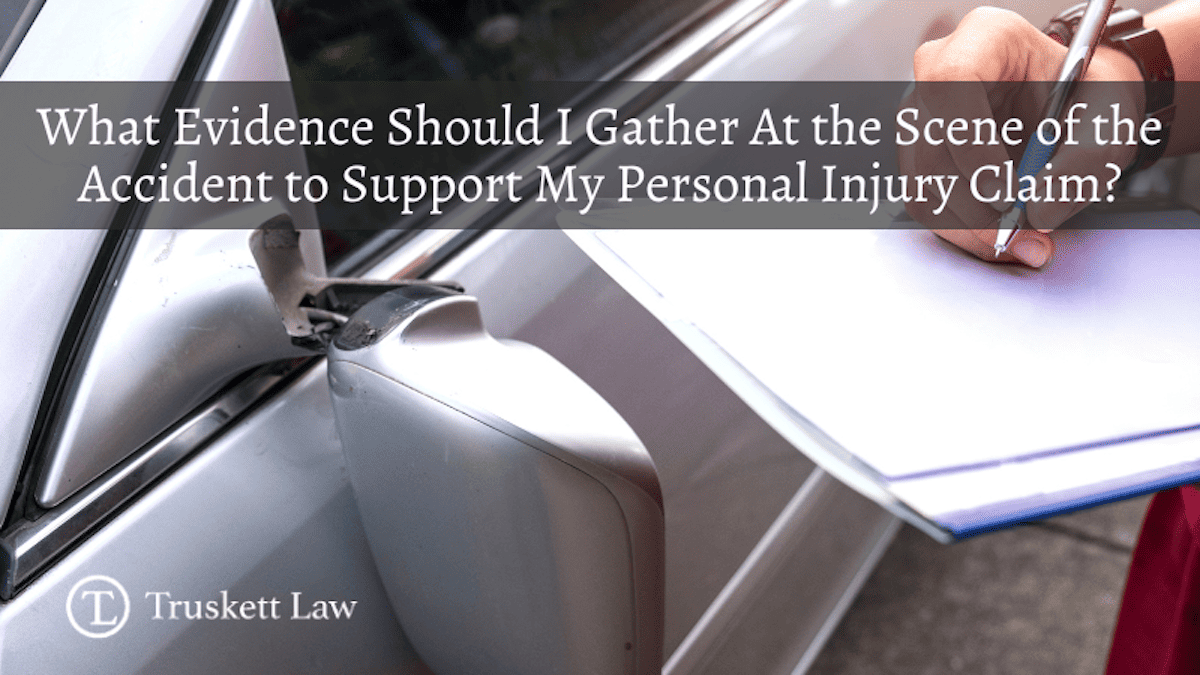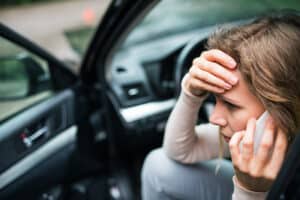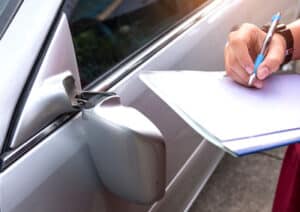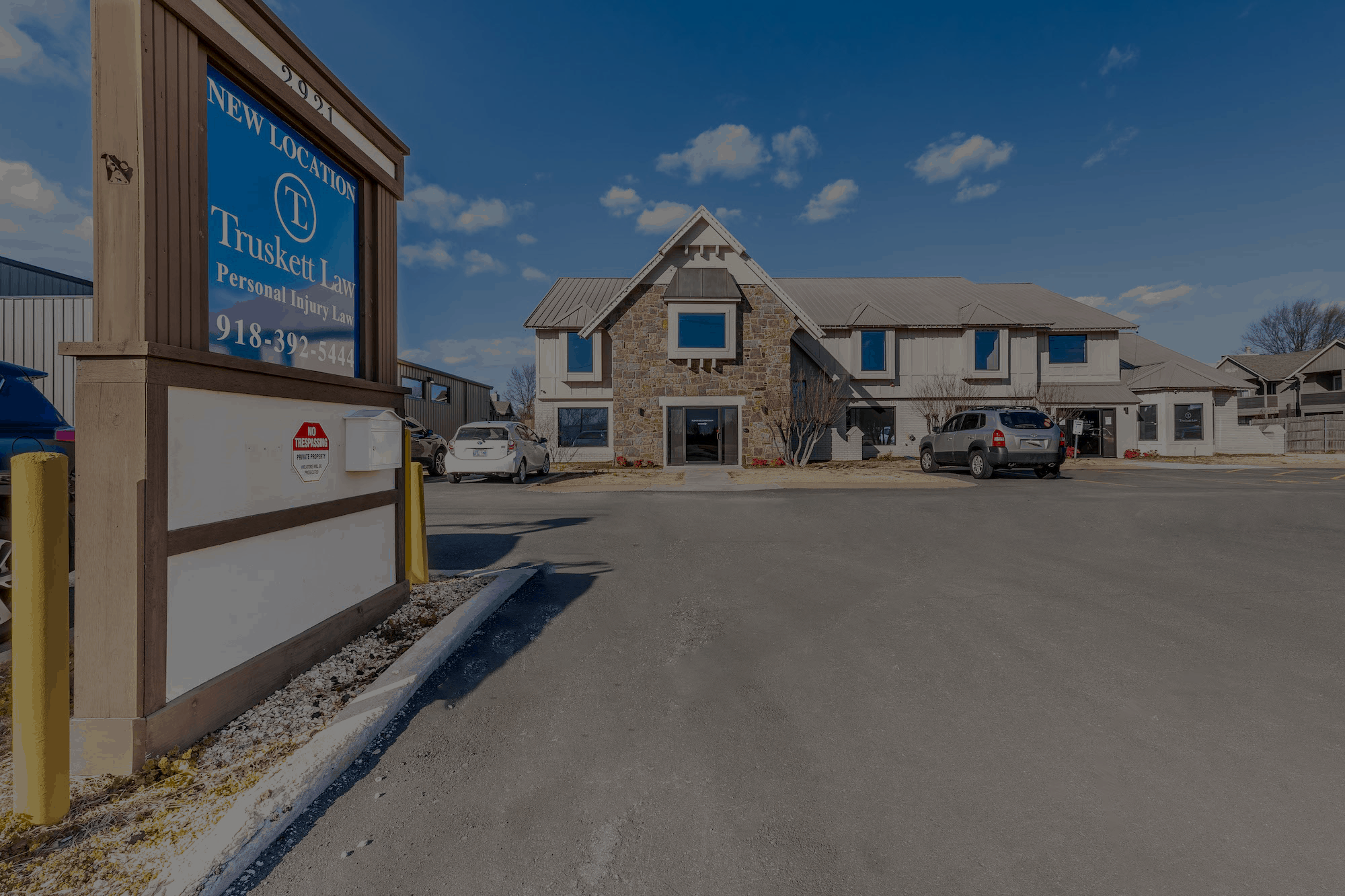
18 Jul What Evidence Should I Gather At the Scene of The Accident to Support My Personal Injury Claim?
What Evidence Do You Need To Support A Personal Injury Claim?
Have you been injured in an accident and are now left dealing with the pain, inconvenience, and financial costs that come along with it? If so, likely, you’ve already determined that filing a personal injury claim is the best course of action.
But did you know that collecting evidence at the scene can help to reinforce your case if it goes to court? Perhaps you’re wondering, what evidence should I gather at the scene of the accident to support my personal injury claim?
Here is an overview of what we will cover in this article:
- Document the scene
- Get contact information
- Collect medical records
- Gather vehicle and location information
- Request the police report
- Take your own notes
Now let’s take a deeper look at these necessary steps you should take to support your personal injury claim.
Document The Accident Scene With Photos And Videos
When it comes to personal injury accidents, it’s important to document the scene as thoroughly as possible. One of the best ways to do this is by taking photos and videos.
Be sure to capture any damage to your property, whether it’s your car or something else that was impacted by the accident. It’s also important to take pictures of any injuries you may have suffered.
The more evidence you have, the better off you’ll be when it comes to dealing with insurance companies and legal proceedings. Don’t be afraid to take as many pictures and videos as you need to fully document the scene.

Get Contact Information From Witnesses At The Scene Of The Accident
As you assess the scene of an accident or incident, it is crucial to gather witness information. While you may have a clear understanding of what happened, witness accounts may help support your case.
Always ask for the names, phone numbers, and email addresses of all eyewitnesses present at the scene. This information will come in handy if you need to follow up with any of them later on.
Remember, to ensure the accuracy of the information provided by your witnesses, it’s recommended to ask them for their contact details as soon as possible after the event. This approach will help you build a strong case and protect your interests.
Collect Your Medical Records
Possibly the most important evidence you need to gather at the scene of an accident to support your personal injury claim are medical records.
After experiencing an injury, it’s crucial to collect all medical records related to your injuries and treatment. By doing so, you can take control of your health and ensure that you have access to all relevant information.
Medical records may include doctor’s reports, prescription slips, and other important documents that can offer insight into your condition and help you make informed decisions about your care.
Don’t be afraid to ask for copies of these documents from your healthcare provider – they are legally required to provide them to you. Your medical records are an essential part of your health journey, so be sure to collect and keep them safe.

Gather Vehicle And Location Information
In the event of an accident, it is important to gather vehicle and location information from all parties involved. This includes license plate numbers, make and model of cars, and insurance providers.
This also includes any information that can help you identify the location of the accident. This could be a street address, intersection, or any other details that may prove useful in court.
Having this data on hand will make it easier for you to determine who was at fault and provide valuable evidence for your case.
Not only is this information required for insurance claims and police reports, but it can also be helpful for future reference.
It is important to be thorough and collect as much information as possible, as even small details can be crucial in determining fault and resolving any legal issues that may arise. Remember, the more information you have, the better prepared you will be in dealing with the aftermath of an accident.
Request The Police Report
If you’ve been in an accident and law enforcement was called to the scene, it’s essential that you ask for a copy of the police report. This report contains valuable information that can help support your case.
For example, it may include important details about the accident, witness statements, and any citations issued. Having a copy of the police report can also help you understand the chain of events that led up to the accident, which can be useful when trying to determine fault.
So, if you haven’t already, make sure to obtain a copy of the police report as soon as possible. If you are working with a lawyer, they may be able to obtain the police report for you.
Take Personal Notes
The last part of the evidence you should gather at the scene of the accident to support your personal injury claim is personal notes. This may seem silly but it’s always important to take notes when something unexpected happens.
Whether it’s a car accident, natural disaster, or medical emergency, documenting details can be crucial for insurance claims, legal cases, or simply for personal records.
When taking notes, be sure to include information on the weather conditions at the time of the event, how fast you were traveling when it occurred, and any other important details such as how long it took for emergency services to arrive on the scene.
These notes may seem small, but they can make a big difference in the aftermath of a crisis.

The Bottom Line
No one wants to be in an accident and having to figure out what to do next can be overwhelming. Hopefully, the information provided here will help guide you through the steps of dealing with an automobile accident, from documenting the scene to taking notes on what happened.
It is always best to stay calm and collected even in stressful situations like these and keep in mind that it is important to have all of this gathered information for your own records as well as any legal disputes that may come up as a result of the situation.
Best advice? Be sure that you practice safe driving at all times by adhering to the speed limits, (not) using your cell phone, and paying attention to the road. Stay alert and aware while behind the wheel, so that potential accidents will always be avoided.
Related Questions
How do I get a copy of the police report?
To obtain a copy of a police report, you’ll need to contact the local law enforcement agency that responded to the scene of your accident.
You may need to provide proof that you had involvement in the incident and/or pay a small fee. Once you have provided these items, they will typically provide you with a copy of the report.
What if I don’t have medical records?
If you do not have access to your medical records, it’s important to contact your healthcare provider as soon as possible. They are legally required to provide copies of any documents related to your treatment upon request.
It is also necessary that you keep these medical records safe and up to date, as they are an important part of your health journey. Keeping a paper or electronic copy of all relevant documents is essential for accurate record-keeping purposes.
What if I can’t remember the details of the accident?
It’s normal to experience difficulty remembering certain details after being in an accident, particularly if it was a traumatic experience.
To help jog your memory, you can look through any pictures or videos you took at the scene of the accident, listen to witness statements, or review any police reports.
Additionally, talking to a qualified mental health professional may be beneficial if you’re feeling overwhelmed with emotions related to the incident.


Sorry, the comment form is closed at this time.